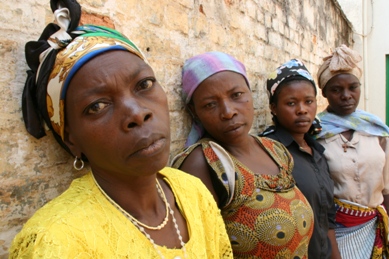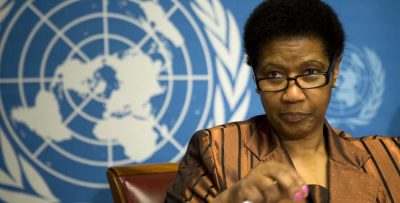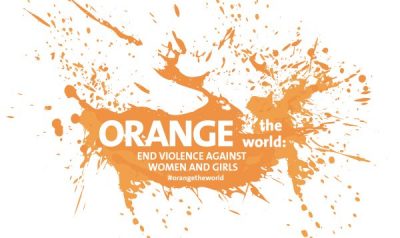By
Darell Maurice
Humanity last month celebrated the International Day for the Elimination of Violence against Women.
In the Democratic Republic of Congo, this day has once again been marred by the continued dehumanizing practice in the East that is still prey to armed conflict. a situation that requires all-round strengthening for the fight against; a fight that must remain to permananently eradicate the violence.
In its latest report, the United Nations Joint Office for Human Rights (UNJHRO) confirms this trend by documenting in the month of October, 407 cases of violations of human rights in the territory of the DRC. This represents a decline from the month of September 2015 in which 503 violations were recorded. The most affected provinces are those of the eastern DRC, namely North Kivu (154 violations), the former Eastern Province (125 violations) and South Kivu (50 violations).
In this part of the country, UNJHRO documented during the reporting period 33 victims of adult sexual violence committed mainly by armed men. Given the scale of this, the Government has pledged to bring the perpetrators to justice and to intensify its efforts in the fight against sexual violence by armed men. The report states that with regard to sexual violence by combatants from armed groups (16 victims), they are mainly made of the militia Front for Patriotic Resistance of Ituri (FRPI 10 victims) and the Democratic Forces for the Liberation of Rwanda (FDLR 6 victims).
The child protection section of the UN mission for its part recorded seven cases of rape of girls in the provinces affected by the conflict. These are all reasons militating for exemplary sanctions against the perpetrators of these heinous acts.
On the occasion of the International Day for the Elimination of Violence against Women, the Assistant Secretary General of the United Nations and Executive Director of the UN / Women, Phumzile Mlambo Ngcuka, sounded the alarm, stating that worldwide, violence against women and girls remains one of the most serious violations of human rights tolerated, both as a cause and as a consequence of gender inequality and discrimination based on gender.
She believes that its continued presence is one of the clearest signs of imbalance and we are all determined to change that. “On this International Day for the Elimination of violence against women, we confirm that this type of violence is not acceptable; it is not inevitable, one can stop it,”said Mrs Phumzile Mlambo Ngcuka.
The Executive Director of the UN / Women argued that although there is no single answer to such a complex issue, it is becoming increasingly clear that certain types of actions can stop violence before it occurs, particularly when taken at the same time.
Continuing in the same direction, she is convinced that if all parties concerned, public authorities and ordinary citizens, act in a concerted manner, we can tackle the unequal power relations and structures that exist between women and men, to highlight the changes needed in terms of attitudes, practices and institutions.
“Try it, she said, to imagine how the world of girls growing up today could be different if we can prevent early marriage and female genital mutilation. And if we stop condoning domestic violence, insulting SMS, impunity that rapists enjoy, slavery of women in conflict zones, women’s murders that defend human rights or hostility from police and courts dealing with women’s testimonies of the violence they are subjected to.”
Moreover, the Executive Director of the UN / Women appreciated the progress made in improving the laws that characterize these violent acts and related abuses. Already 125 countries have laws against sexual harassment, 119 have enacted those against domestic violence, but only 52 countries have legislation on domestic violence.
Mrs Phumzile Mlambo Ngcuka also remains convinced that together, leaders and policymakers and those of civil society, general managers and other teachers can give examples of zero tolerance against violence based on gender.
The mobilization of communities and groups in favour of women and men interventions, educational programs and the empowerment of women, she says, are only some of the interventions that have an impact when combined with other legal changes, behavioural and social.
In Uganda we see inciting communities to discuss the imbalance in power relations between women and men has halved the figures for violence by armed men against their partners. Similarly in Myanmar, providing legal assistance to rural women improved access to justice.
Campaign ‘Orange the World’ launched
“We are launching today, she said, the campaign ‘Orange the world’, knowing beforehand that the tuktuk drivers in Cambodia, the football stars in Turkey, Albanian Police officers, school children in South Africa and Pakistan and hundreds of thousands of people worldwide have taken a stand, each in their own way.”
For the first time, it noted that specific targets for the elimination of violence against women were included in the agenda for sustainable development in 2030. These objectives require an acceleration of ongoing actions.
She recalled that when more than 70 world leaders spoke in New York on January 27 on the occasion of the meeting of world leaders in gender equality and empowerment of women, the majority of them said that ending violence against women and girls had become a priority.
“I am convinced that if we work together, if Governments, civil society organizations, the United Nations, organizations , schools and individuals are mobilizing in new movements of solidarity, we will eventually create a more equal world, a 50-50 planet, where women and girls can live and actually live free from violence,” she said.





No Comments Yet!
You can be first to comment this post!